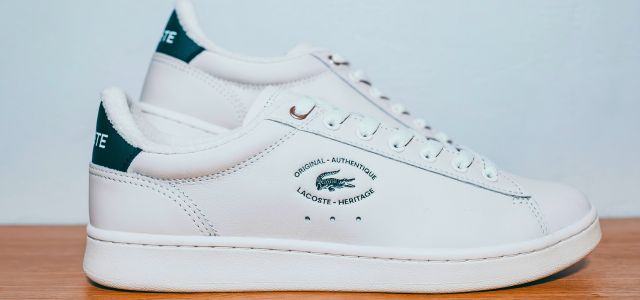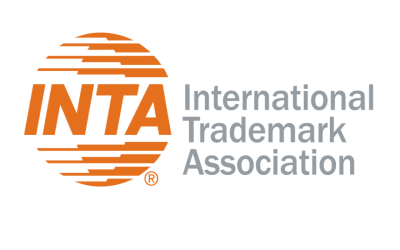In 2016, a legal battle with a bite unfolded before the Delhi High Court. Lacoste, the iconic French fashion brand known for its distinctive crocodile logo, and its Indian licensee, Sports and Leisure Apparel Ltd., locked horns with Crocodile International Pte Ltd. (CIPL) and Crocodile Products Pvt. Ltd. The dispute centered on allegations of trademark and copyright infringement concerning the use of a crocodile device.
Lacoste first used and registered the crocodile device in France in 1927, later securing trademark registrations in India, with the earliest registrations dating back to January 1983.
The brand began using the mark in India in 1993. Meanwhile, CIPL held registrations for the crocodile word and a corresponding device since June 1952 and has been using it since 1990 for similar goods like clothing and shoes.
Lacoste discovered that CIPL had started using a similar crocodile device without the accompanying “Crocodile” brand name, which they claimed to have been using since at least 1997. Lacoste argued that this constituted trademark infringement and misrepresentation, as CIPL falsely represented the mark as registered.
Despite Lacoste’s formal communications between 1999 and 2001 urging CIPL to cease use, CIPL refused, citing a 1983 Co-Existence Agreement (CEA) between the parties. Lacoste contended that the CEA did not extend to India, and CIPL was unauthorized to use the crocodile device without its brand name. Consequently, Lacoste sought a permanent injunction and financial disclosures from CIPL.
Court findings
Finally, in August 2024, after a thorough examination, the Delhi High Court ruled in favor of Lacoste, granting a permanent injunction against CIPL, preventing further use of the disputed mark. The court mandated that CIPL account for profits earned from the sale of goods bearing the infringing mark from August 1998 until its use ceased. Additionally, the court directed that the plaintiffs recover their actual costs from the defendants.
Several critical findings were pivotal in the court’s decision:
- Establishment of Lacoste’s ownership and defendant’s use of the crocodile device
The court confirmed that Lacoste’s crocodile device was eligible for copyright protection, supported by historical documentation and uncontested witness testimony. CIPL did not dispute the validity of Lacoste’s registrations in India. The court distinguished CIPL’s earlier use of a composite mark (crocodile word and device) from its recent standalone use of the crocodile device. Since Lacoste’s registration of its crocodile device predated CIPL’s standalone use, the court concluded that CIPL’s rights were limited to the composite mark and did not extend to the standalone device resembling Lacoste’s mark.
- Deceptive similarity between the crocodile marks
The court assessed the similarity between the trademarks, the likelihood of consumer confusion, and the adherence to exclusive rights under the Trade Marks Act, 1999, and the Copyright Act, 1957. It found a high degree of visual and conceptual similarity between Lacoste’s and CIPL’s trademarks, with the differences being too trivial to prevent consumer confusion. The court determined that the marks were deceptively similar under Section 2(1)(d) of the Trade Marks Act, 1958.
- The CEA Agreement, 1985 letter, and validity of contemporaneous documents
The court examined the 1983 Co-Existence Agreement (CEA) and a 1985 letter to determine if CIPL’s use of the crocodile device infringed Lacoste’s trademark rights. The 1983 Agreement was limited in scope and did not extend to India. The court found no evidence supporting CIPL’s claim that the agreement covered India. Although CIPL argued that the 1985 letter expanded the CEA to other countries, the court agreed with Lacoste that the letter was nonbinding and the agreement’s terms remained restricted to the original regions.
- Violation of plaintiff’s trademark and copyright rights
- Infringement and passing off: The court found the CIPL’s standalone crocodile device to be deceptively similar to Lacoste’s trademarks, potentially causing consumer confusion under Section 29(1) of the Trade Marks Act, 1958. However, the court dismissed Lacoste’s passing off claim, concluding that Lacoste failed to sufficiently prove its exclusive reputation and goodwill in India when CIPL adopted the crocodile device.
- No copyright violation: Regarding copyright infringement, the court differentiated between copyright and trademark protection. It noted that copyright protects original expressions, not ideas, and invoked the ‘merger doctrine’ to explain that when an idea and its expression are inseparable, copyright protection does not apply. The court found that the similarities between the designs were due to the common crocodile concept, not copying, and thus did not support Lacoste’s copyright infringement claim.
Conclusion
This ruling highlights the critical need to clearly establish reputation and goodwill in trademark cases, particularly in the context of cross-border disputes. It underscores the complexities that arise when navigating international intellectual property issues, emphasizing the importance of thorough documentation and legal clarity in protecting trademark rights across different jurisdictions. The case serves as a reminder that territorial limits and agreements must be carefully considered to ensure the effective enforcement of trademark and copyright protections.

Written by Disha Sharma
Senior Associate, Saikrishna & Associates
You may also like…
COLD PALMER: lessons for athletes looking to protect their image
Modern athletes are brands. Just like traditional brands, they generate revenue through their image, licensing their...
INTA to bring its 2026 Trademark Administrators and Practitioners Meeting to Baltimore’s historic Inner Harbor
New York, New York—September 30, 2025—The International Trademark Association (INTA) is pleased to announce that it...
New Minister appointed with responsibility for intellectual property
The UK Intellectual Property Office (UKIPO) CEO has welcomed the new Minister. Kanishka Narayan MP has been confirmed...
Contact us to write for out Newsletter













